Postgraduate Courses
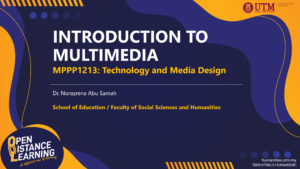
Technology and Media Design (MPPP1213)
The course introduces students to technology and instructional design theories of multimedia elements. Discussions revolve around teaching instructions, multimedia designs and development theories. It also introduces the essential concepts of multimedia development and application. Students will examine theoretically the multimedia elements, which include text, graphics, audio, video and animation and will keep track of their latest technology development. It develops the student’s ability to comprehend, review, analyze and synthesizes and is designed to develop the communication, independent learning and team working skills required in the field of technology and media design.
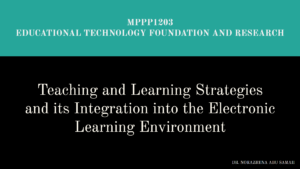
Educational Technology Foundation and Research (MPPP1203)
This is a foundation course that exposing students toward Educational Technology, discussing on Information and Communication Technology (ICT), basic principles of instructional design (ID) and multimedia development as well as web technologies, together with computer-based information system management. The course is also focusing on introduction towards current research trends in Educational Technology, fundamental elements of conducting research and elementary Educational Technology methodology. Among aspects that will be discussed are definition of Educational Technology (process & product), current development of ICT and its impact toward teaching, learning and management, several instructional design models, knowledge management, research and development related with the information technology applications in education.
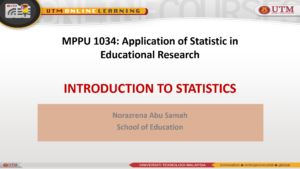
Application of Statistics in Educational Research (MPPU1034)
Statistical reasoning has become one of the people’s fundamental skills because everyday decisions almost always rest on a statistical foundation. Statistical reasoning is not something foreign or separate from us, but rather something that we do all the time. This course is not intended to teach you something entirely new, but rather to increase your skills at doing what you already do, perhaps unknowingly and unskilfully. This basic course in statistics aims to equip students with the knowledge and skills to understand and use of statistics in educational research. The scope of the course will cover both the descriptive and inferential statistics.
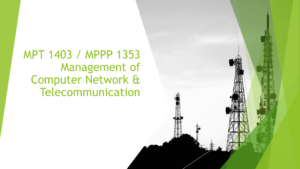
Management of Computer Network and Telecommunication (MPPP1353)
The main goal of this course is to provide with a comprehensive understanding of networking technology, concepts and terminologies. It will also introduce to current trend of Telecommunication systems. This course will enable students to experience in assembling computer hardware and computer networking. They will be given a chance to design, install, testing and commissioning wired and wireless networking in the lab. Finally, students will experience designing, installing, testing, commissioning, managing and troubleshooting computer networking as a group project in this course.
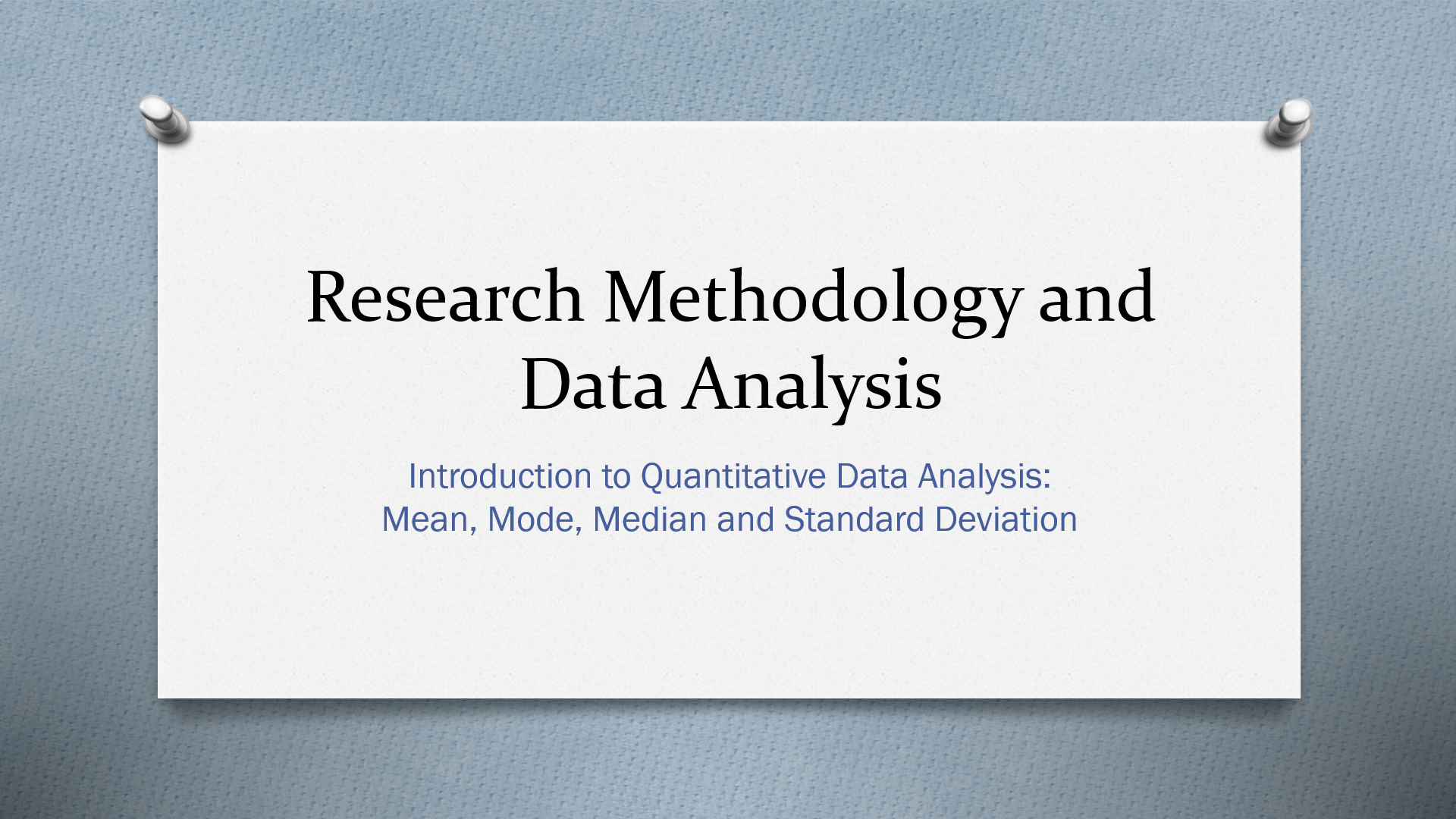
Research Methodology and Data Analysis in Education (MPPU1074/UHPP0010)
This course covers the essential concepts related to research methodology and data analysis in Education. The focus of the course is to encourage students to critically discuss and evaluate components of research process, research designs, instrumentation, population and sampling techniques and data analysis as well as to prepare students to conduct research systematically. Finally, by acquiring the proper knowledge, skills and values, students will be able to conceptualize issues from educational research perspective.
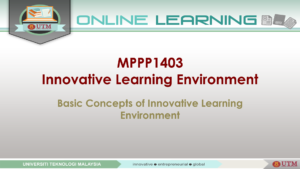
Innovative Learning Environment (MPPP1403)
This course provides exposure and experience to students on current trend of innovative learning environments (ILE). The goal of this course is to promote systematic design thinking that will cause a paradigm shift in the digital learning environments of today and tomorrow. Students will explore a variety of technology and pedagogical approaches in order to propose innovative use of educational space and infrastructure for teaching and learning. Topics covered include investigating emerging trends in digital learning environment, evaluating effective digital communications technologies and integration of such technologies into ILE, basic instructional design principles as applied to the design and facilitation of ILE, pedagogical approaches to facilitate learning in ILE, social processes and presence, facilitating online discussions for cognitive engagement and managing assessment in ILE. Students also are given experience to develop the learning environment that cater current societal issues and then evaluate its effectiveness.

